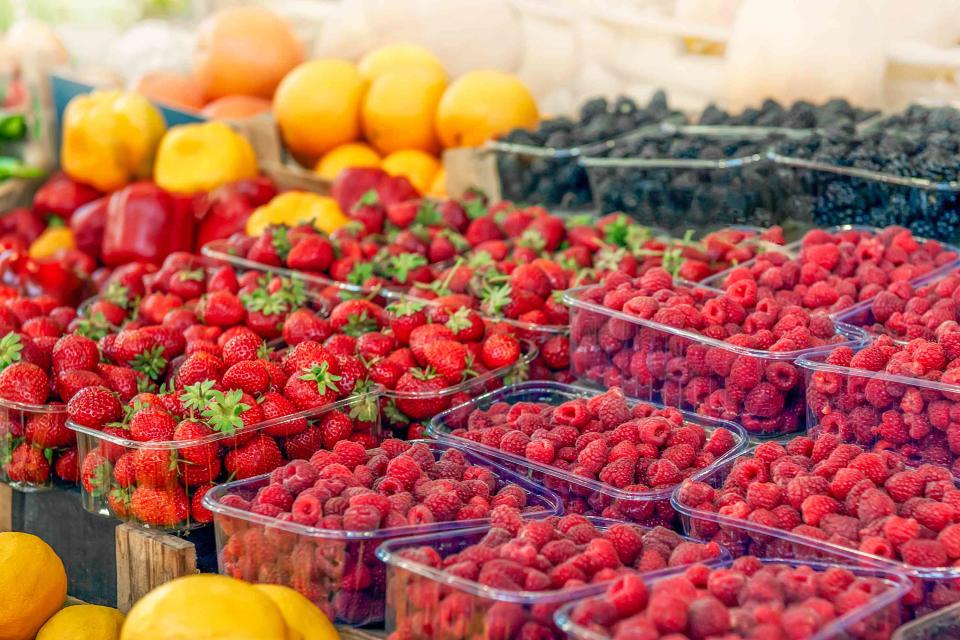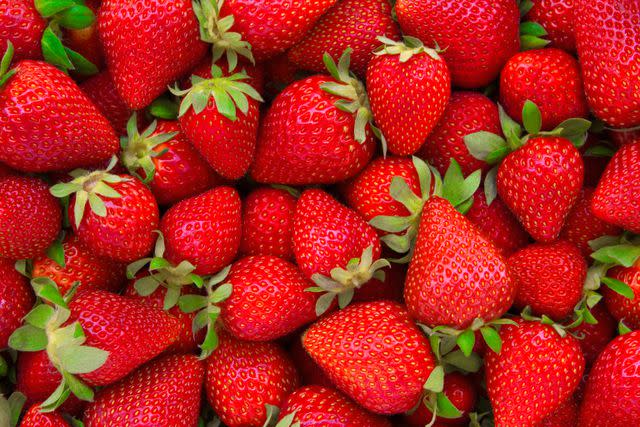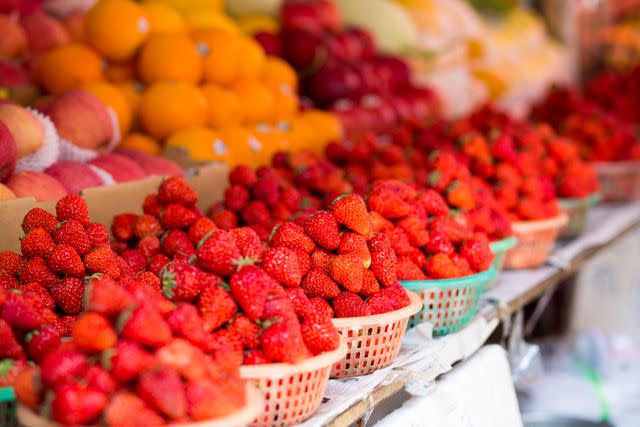Organic vs. Conventional Strawberries: Experts Explain the Difference
Is organic worth the higher price?

Simply Recipes / Getty Images
Fresh strawberries are one of the most popular summer fruits, but according to studies, they are most likely to be contaminated with pesticides. Strawberries are again at the top of the Environmental Working Group’s (EWG) Dirty Dozen—a list of the fruits and vegetables found to have the most pesticides.
“Strawberries are a hard crop to grow and susceptible to insects and other pests, including spoilage microbes. This is the primary reason why pesticides are needed, or there is no crop to pick or harvest,” says Keith Warriner, professor in the Department of Food Science at the University of Guelph in Ontario.
For the EWG's 2024 guide, researchers at the environmental and health advocacy group considered more than 47,000 samples of 46 fruits and vegetables. Non-organic strawberries had an average of eight pesticides per sample. The rest of the list includes spinach, kale, collard, mustard greens, grapes, peaches, pears, nectarines, apples, bell peppers, hot peppers, cherries, blueberries, and green beans.
Warriner underscores the stringent regulations governing pesticide use. He assures consumers that strawberries are unlikely to exceed these limits, and even the smallest amounts would be promptly detected.
“Therefore, even though pesticide residues are present, they would be low levels. So consumers should not be overly worried as the benefits of fruits and vegetables outweigh the negative.”
Carl Winter, Ph.D., emeritus professor in food science at the University of California, Davis, questions how the Dirty Dozen rankings are made, suggesting that “it’s the amount of a chemical, not its presence or absence” that determines how much of a risk there is.
“The best thing consumers can do is to consume fruits and vegetables, period, regardless of whether they are conventionally- or organically-produced,” Winter says.
“My concern is that rankings like the Dirty Dozen make consumers afraid of fruits and vegetables and may result in less consumption of these healthy foods.”

Simply Recipes / Getty Images
Does Washing Remove the Pesticides on Strawberries?
It’s a good idea to wash all produce before you eat it. That can lower the risk of foodborne illness, but cleaning won’t always remove pesticides.
“You may notice that some strawberries have a waxy coating to prevent mold growth,” says Warriner. “This is not easily removed by washing and even without the coating, washing would only remove a proportion.”
He says researchers need to continue to develop ways to grow strawberries without pesticides and ways to remove the pesticides on produce.
“Washing with water is not effective to remove either chemical or microbiological contaminants on fresh produce,” says Xiaonan Lu, Ph.D., a professor in food safety at McGill University in Quebec. “Cooking is effective to kill the microbes, but chemical residues remain under thermal processing.”
Although small amounts of pesticides may be washed away when you clean produce, Winter says, “the normal levels of pesticides on fruits and vegetables pose no risks to consumers.”

Simply Recipes / Getty Images
What About Organic Strawberries?
Fruits and vegetables are an important part of a healthy diet, so the EWG doesn’t want the Dirty Dozen list to scare people away from produce. The organization recommends that shoppers opt for organic versions of the foods—like strawberries—on the list.
Warriner says the organic label doesn’t mean no pesticides were used, but there are usually more restrictions. “Although organic would imply pesticide-free, the reality is that pesticides can be used when needed,” he says. “Organic growers may select cultivars that have natural resistance to some pests and grow in soil-free systems with coverings.”
Buying organic can be a choice for shoppers who want to know they are getting fewer contaminants. Winter says, “But they should be prepared to pay much more for organic berries while the tiny levels of pesticide residues that might be on conventional berries pose no risk to consumers.”
Read the original article on Simply Recipes.


